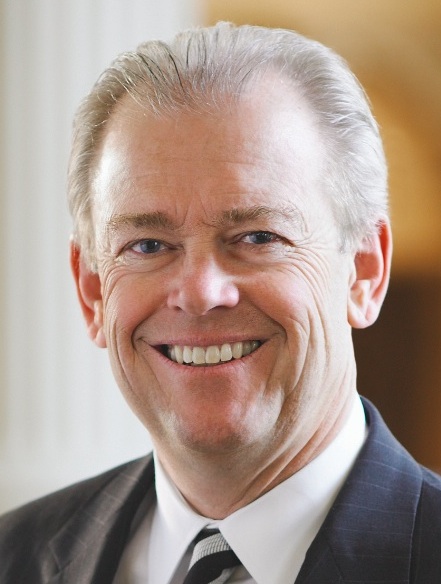 At the end of January, Malcolm Heins stepped down as CEO of the Law Society of Upper Canada, a job he’s held since 2001. We bid farewell to Heins with a few questions about his 11 years at the helm of the organization.
At the end of January, Malcolm Heins stepped down as CEO of the Law Society of Upper Canada, a job he’s held since 2001. We bid farewell to Heins with a few questions about his 11 years at the helm of the organization.
After more than 10 years on the job, what are your biggest impressions as you go?
I think leaving behind an organization that is financially sound, is well run. People like working here. It’s a very different place than when I started. At that time, it was demoralized, disorganized, not in good financial shape, no sense of customer service at all.
What did you do to change that?
This is not the first time I’ve worked with an organization that was in pretty bad shape. The thing I did was I talked to the people working here. It’s amazing how many know what’s wrong. I took most of their ideas, injected some of my own, hired the best people I could afford and made a start of it.
Was there one moment of your tenure that will stick out the most?
I think the high point was the amendment of the Law Society Act, which came into effect in 2007, which changed us from a legal regulatory organization into a regulator of legal services, and of course regulating paralegals. It was a very sweeping change to our mandate and it hadn’t changed prior to that for 200 years.
What are the biggest challenges facing Ontario lawyers right now?
The marketplace for delivery of legal services is changing. For one thing it’s become more international. We’ve already gone through a nationalization phase and we’re now embarking on a more international phase, which also provides a lot of opportunities as well, but it nevertheless is going to be a changing environment. In addition, I think that we will see legal services provided over time in different structures than we do today. We’ll see lawyers working on a whole range of different environments and providing legal services to third parties.
How about young lawyers?
In my day — which for some people is a long time ago — the road map was a lot clearer. Today, the changes I’m seeing make the choices more difficult. How do you decide what you are going to do? Where the real changes are taking place are on the part of lawyers who are working somewhere else, doing something else. They still want to be members of the law profession; even through they are not practising law. But legal training is still important to what they are doing.
With regards to the shortage of articling positions, are people really ready to make a change?
I think so, we’re on the cusp of that. It wouldn’t have happened two to three years ago. It’s probably the moment now that we’ll see that kind of change embraced. It’s still a model that envisioned that everyone is going to go into private practice.
What was most challenging aspect of being at the helm of the society all these years?
In my position where I deal with a very wide range of stakeholders, even within the profession, there is a huge variation of interests and expectations. So that would be both what was the biggest challenge and what made the job so interesting.
What’s next for you?
I’m going to become Malcolm Heins licensee. I will continue to sit on some boards and probably do some consulting. I don’t want to overdo it because I want some free time. I have an olive grove that I need to tend in Italy, I want to lower my handicap somewhat and continue to ski and spend time with my granddaughter.
Any final thoughts before you go?
The tough part of leaving this job is leaving the great staff here and the relationships I’ve had with the government and the benchers of the organization. I’ve made a lot of friendships that won’t come to an end, but they will be different. I’m sorry from that perspective to be moving on. Nevertheless, it’s time.
Diane Peters is managing editor of Precedent.
The Advocates’ Society hosts a dinner to honour Malcolm Heins next Wednesday, Feb. 22 at the Toronto Hilton on Richmond Street West. Click here for more information.

